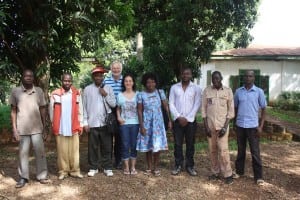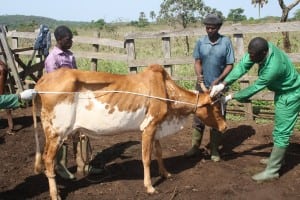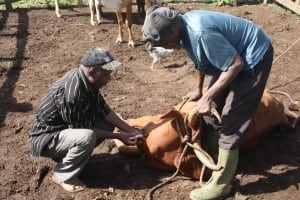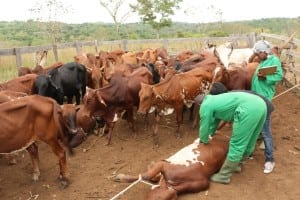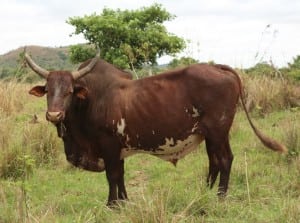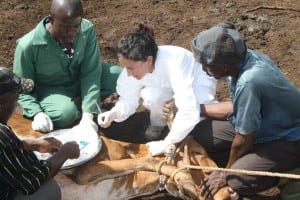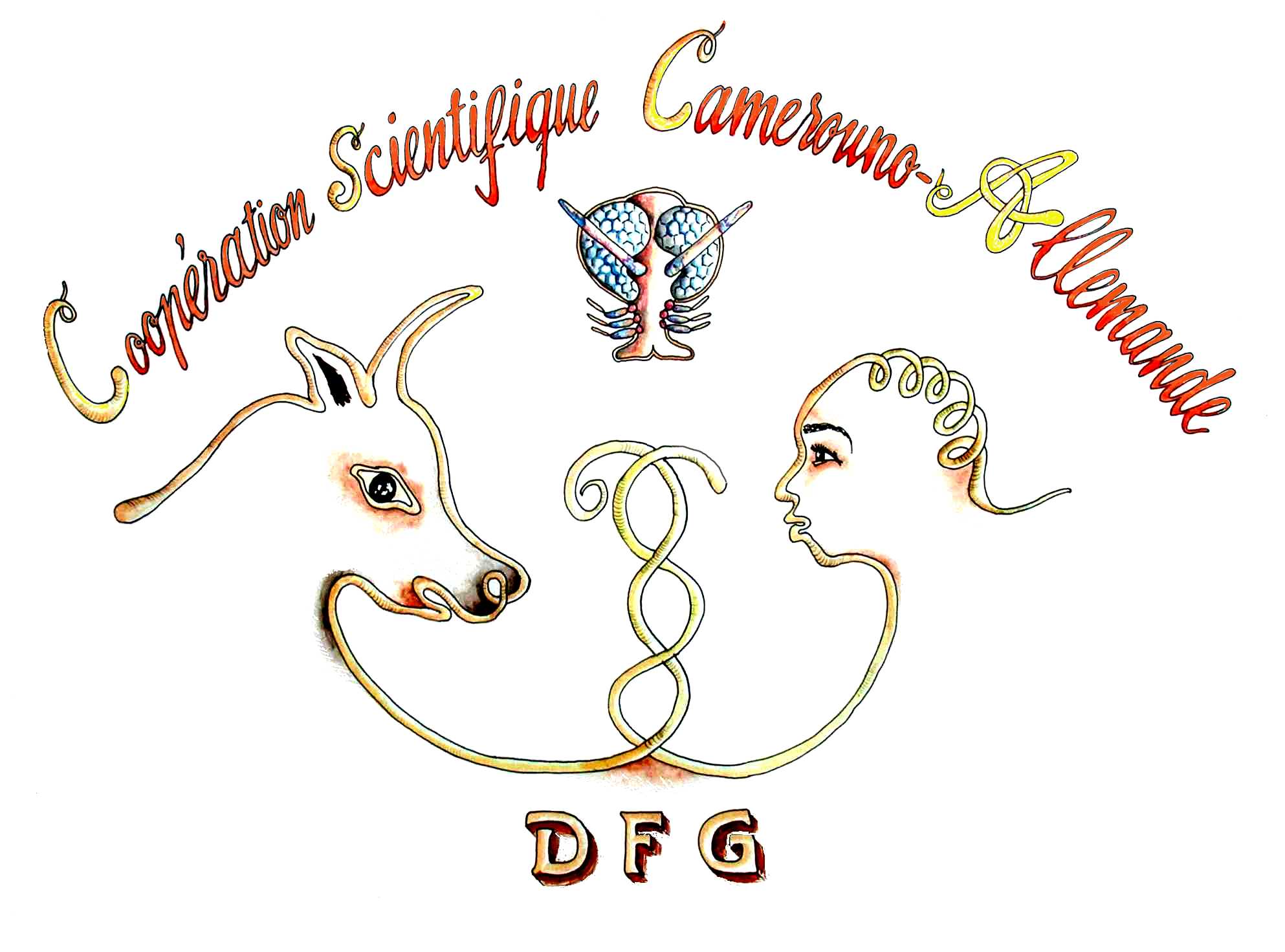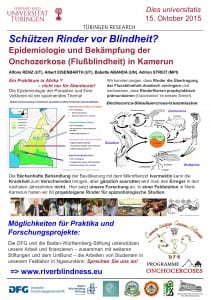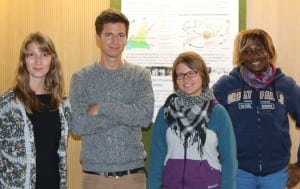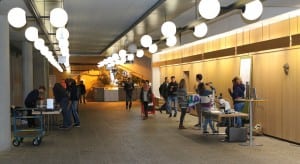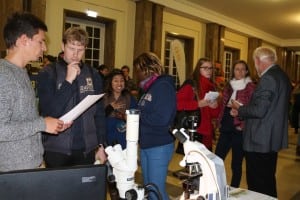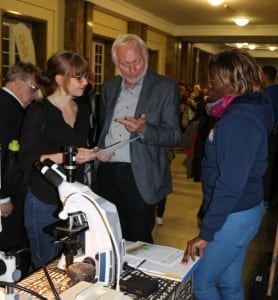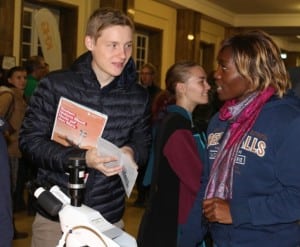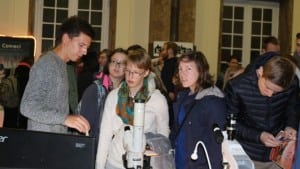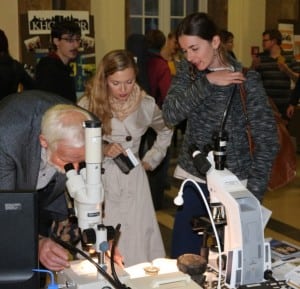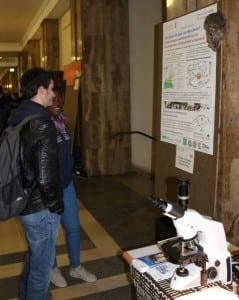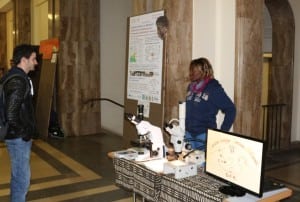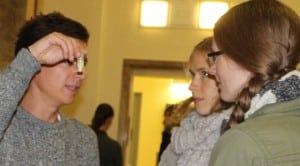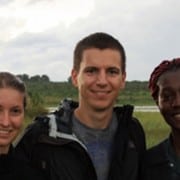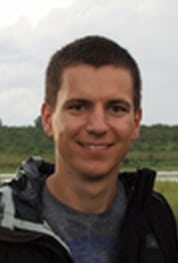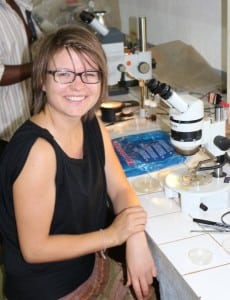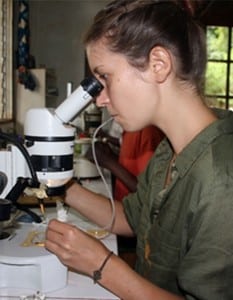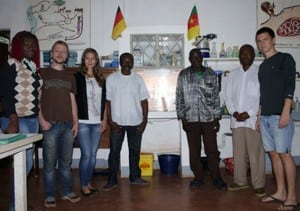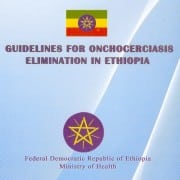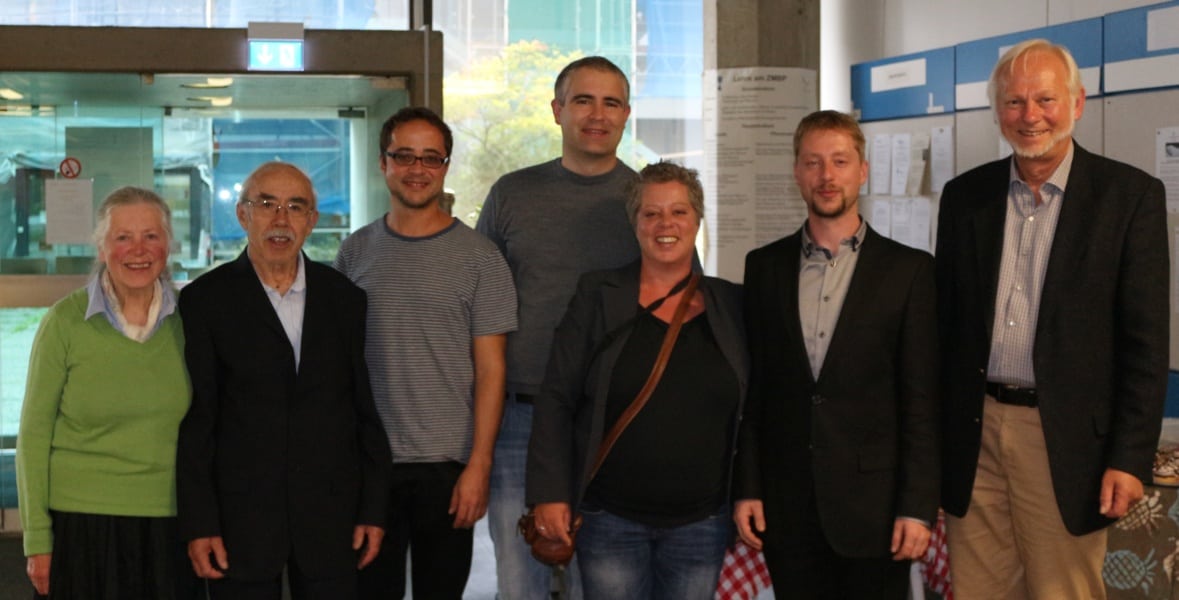TUEFF – Tübinger Fenster der Forschung 2017
TÜFF, the “Tuebingen Window of Research“,
This year, the Tübinger Fenster der Forschung took place on the 28th of April. Research projects at the University of Tübingen presented their activities in research and teaching.
http://www.uni-tuebingen.de/tuefff
More than 100 projects were present in the Hörsaalzentrum on the Campus Morgenstelle. Also Programme Onchocercoses, see pictures.
Our presentation of the field-work in Cameroon highlighted the possibilities of German-Cameroonian collaboration and exchange of students in biology, parasitology and entomology. The Baden-Württemberg Stiftung is supporting this international collaboration and provides grants for visiting students and scientists.
Many students and colleagues came to visit our stand, also Prof. Engler, the rector of the university and Prof. Rosenstiel, the dean of our faculty. Under two microscopes, parasites and vectors could be seen and Cameroonian fruits, coffee and chocolate could be tested – without any parasites, for sure!
Dr. Albert Eisenbarth, MSc Babette Abanda, MSc Archille Paguem and stud. biol. Felicia Trossmann took care of explaining the purpose of our work to the visitors.
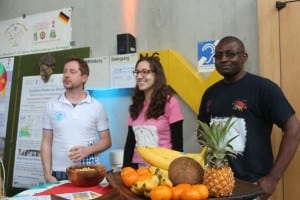
Tübinger Fenster der Forschung 2017
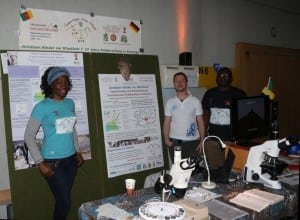
Tübinger Fenster der Forschung 2017
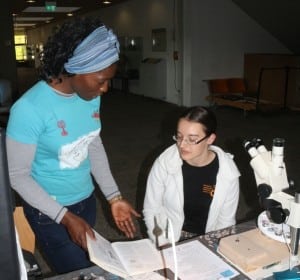
Tübinger Fenster der Forschung 2017
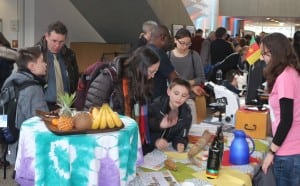
Tübinger Fenster der Forschung 2017
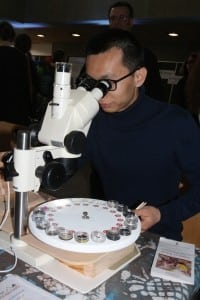
Tübinger Fenster der Forschung 2017 – visitor
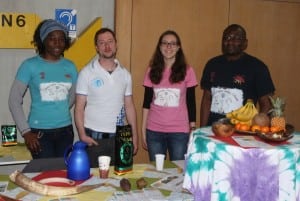
Tübinger Fenster der Forschung 2017 Babette Abanda, Albert Eisenbarth, Felicia Trossmann, Archille Paguem

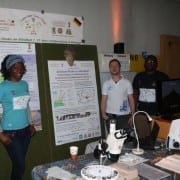
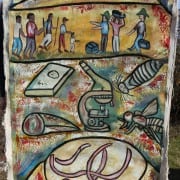
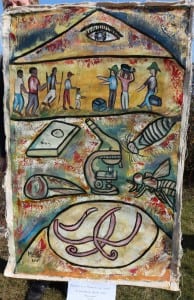
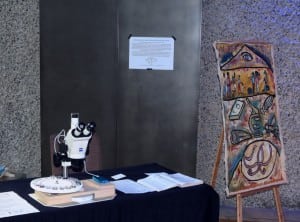
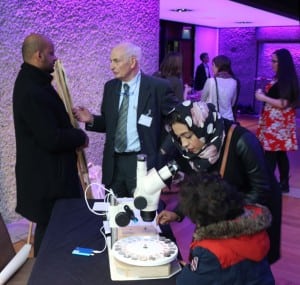
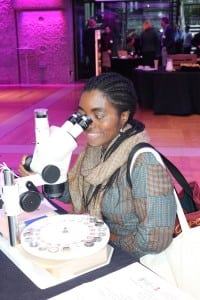
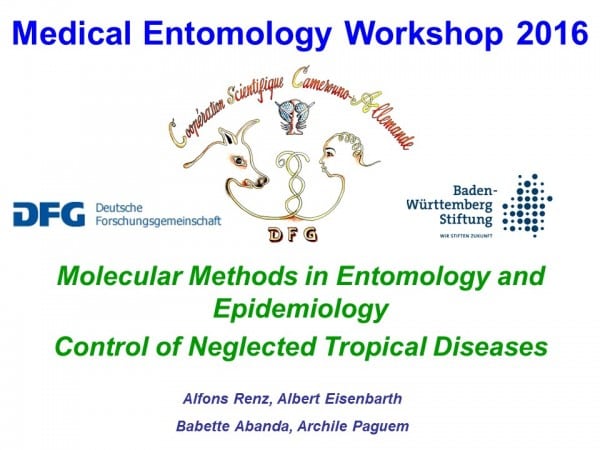
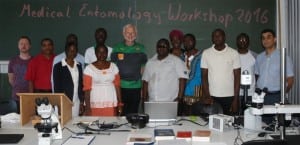
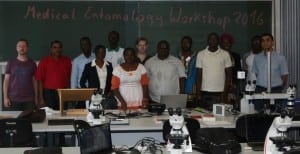 Participants of the workshop
Participants of the workshop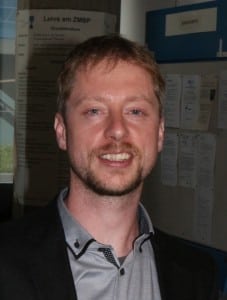 Dr. Albert Eisenbarth, university of Tübingen
Dr. Albert Eisenbarth, university of Tübingen